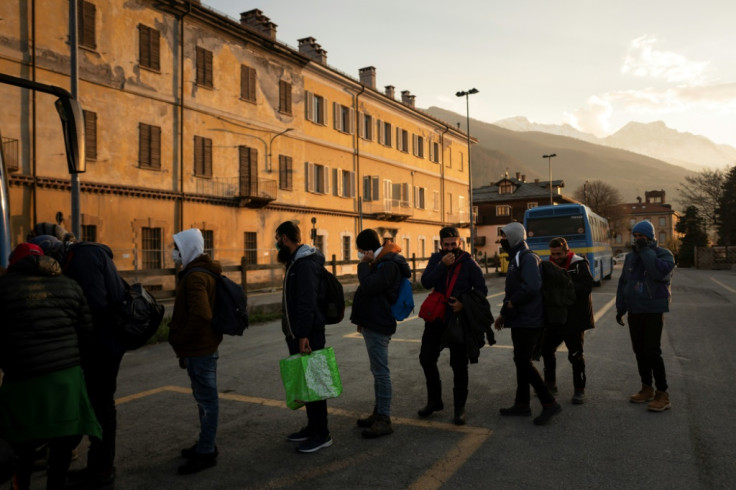
Last week, the European Council reported that the union had reached a breakthrough agreement which set out to reform the European Union's (EU) asylum and migration system.
The deal was agreed upon by the European Parliament, the European Commission and the EU member states.
The Migrant Pact legislation, which referenced to border control, data collection and asylum processing, was changed by the union to prioritise deterring migrants from arriving to EU nations altogether.
Under the new pact, those who arrive to the European member states illegally, will be taken into custody and processed through a substandard accelerated asylum system that has been adapted to omit safeguarding measures.
Those who have been found in ocean rescue operations will also be detained and channelled into the new rapid asylum centre.
While being ushered through the new stead-fast system, undocumented children, aged six and above, will have their fingerprints taken.
The agreement referenced a "crisis regulation" that allows member states, who are experiencing either a "mass-influx" of migrant arrivals or a "situation of instrumentalisation of migrants by a third country or non-state actor", to devalue key human rights obligations that have been set up to keep the legal right to asylum.
The new political overhaul has since been slammed for violating the rights of migrants and the safety of those already fleeing persecution.
When the political deal was announced, the European Council on Refugees and Exiles (ECRE), an alliance of more than 100 NGOs across Europe, said that the changes were "byzantine in their complexity and Orban-esque in their cruelty".
Speaking on his GB News programme, Nigel Farage, former member of the European Parliament and Brexit Party Leader, said that the changes could be the EU "waking up to reality".
Farage referenced his statement to the European Parliament in 2015, in which he urged the member-states to "follow the example of Australia" and warned that the EU was "headed for disaster".
The former UKIP Leader continued to declare: "It seems so obvious to me. If you literally allow anyone that crosses the Mediterranean or sets foot in Italy or Spain, wherever it may be, to stay, which is what they did, that this would have catastrophic consequences."
Alluding to the recent terrorist attacks in Sweden, Farage noted that the "social consequences" of mass migration in Europe, "have been felt in countries like Sweden [and] have been enormous".
According to Human Rights Watch, after years of negotiations since the European Commission first proposed the Migration Pact, the result of the adaptations is "worse than feared".
In a report, Human Rights Watch pointed the finger at EU nations who have been "claiming wide powers of discretion in migration management at the expense of people's rights".
Under the adapted migration pact, EU member states will now be responsible for asylum seekers and applications for 20 months – an eight-month increase to the previous 12-month duration.
However, for the asylum seekers who have entered the EU member-state on "small boats" or following a search and rescue ocean mission, the EU nation will be responsible for their fate for 12 months.
If a person has their asylum application rejected, in the case of a renewed application, the EU member state's responsibility will end after 15 months since the person first arrived in the country.
The updated EU Migrant Pact will also see that "member states have full discretion as to the type of solidarity they contribute" – including the relocations of asylum seekers and of beneficiaries of international protection, financial contributions and solidarity measures.
The Human Rights Watch report went on to criticise the European Parliament, the European Commission and the EU member states for continuing to shift the responsibility onto neighbouring countries including Egypt, Libya, Tunisia, and Turkey.







